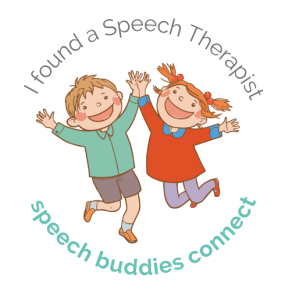 It’s time to start thinking Back to School! As parents and teachers, we want to give our kids everything they need to succeed, and at this time of year it seems easy: pencils, paper, notebooks, a backpack, maybe a lunchbox — all the tools of their trade. But it’s easy to overlook the most important things: excitement, self-esteem, self-confidence. Are there tools for that? Just like the physical tools our kids use to start their new year, emotional needs should be a priority; we want our children to step through the classroom doors with ease. Speech Buddies has been busy building an easy way to make back to school speech therapy, or anytime speech therapy, as accessible as possible…
It’s time to start thinking Back to School! As parents and teachers, we want to give our kids everything they need to succeed, and at this time of year it seems easy: pencils, paper, notebooks, a backpack, maybe a lunchbox — all the tools of their trade. But it’s easy to overlook the most important things: excitement, self-esteem, self-confidence. Are there tools for that? Just like the physical tools our kids use to start their new year, emotional needs should be a priority; we want our children to step through the classroom doors with ease. Speech Buddies has been busy building an easy way to make back to school speech therapy, or anytime speech therapy, as accessible as possible…
Teenager Technology Overload – How Much is Too Much?
Parents' CornerYour teen seemingly goes from his laptop, to his tablet, to his smart phone as if it’s a full time job. Sound familiar? Sure, technology today is “essential,” but honestly, at times it seems like teenager technology overload. In this age where our children don’t know a world without technology, families with teenagers are struggling to find out the appropriate balance. Technology is an excellent resource, especially for use in a speech therapy setting, as long as the appropriate rules and limits are followed. As our teenagers have access to more information than ever before, it’s important to realize that their brains may not be able to process it as easily. A study from Loren Frank of the University of California suggested,
Downtime lets the brain go over experiences it’s had, solidify them and turn them into permanent long-term memories.
However when our brains are constantly stimulated, “you prevent this learning process.”
5 Fast Fixes for “F” Sound Practice
At Home Ideas Language Development Parents' Corner Pronunciation & Lisps Speech Therapy Techniques
Image courtesy of www.really-learn-english.com
A few weeks ago, we covered methods to help your child correctly pronounce the sound of “TH”. While the most commonly mispronounced sounds are r, l, s, ch, and sh, the sound of “F” as in “Fish” is particularly difficult for a number of people, especially young children. Are you hearing a “p” instead of an “f”? Do your fish live in a “pishbowl” instead of a “fishbowl”? While we don’t have a Speech Buddy Tool designed to treat the mispronunciation of “f,” we do have suggestions to help your child with “f” sound practice. Here are five fabulous facts and features to fix the sound of “f”.
Continue reading
Easy and Effective Ways to Build Reading Skills
Language Building Games Language Building SkillsBuild Reading Skills. Studies have shown that the most enthusiastic and voracious readers received early introduction to reading at home. Encourage your child to make reading a part of every day life by adding a few simple steps to your daily routine. If you are modeling reading at home, it’s likely your child will follow your footsteps and learn to love to read. Of course, they don’t need to read the Wall Street Journal, but by offering a wide variety of reading material around the house, your child will be encouraged to pick up a book and start making reading a habit.
Continue reading
5 Ideas to Help Kids Learning to Follow Directions
At Home Ideas Parents' Corner
Help Your Kids Follow Directions. Image courtesy of http://www.keepcalm-o-matic.co.uk/p/keep-calm-and-follow-directions-8/
Please put your toys away. Please put your toys away. Please put your toys away now! Sound like a broken record? Sometimes it does around my house. It can be very frustrating and hard to keep calm when your child does not follow instructions or completely ignores your requests. Often kids view these instructions as commands or even punishments, when they are simply ways to make their lives (and ours) easier. Following directions is a crucial life skill, and if it’s not cultivated properly at home can be a problem once school arrives. What are some ways you can help your child follow your directions? We’ve got a few ideas.





